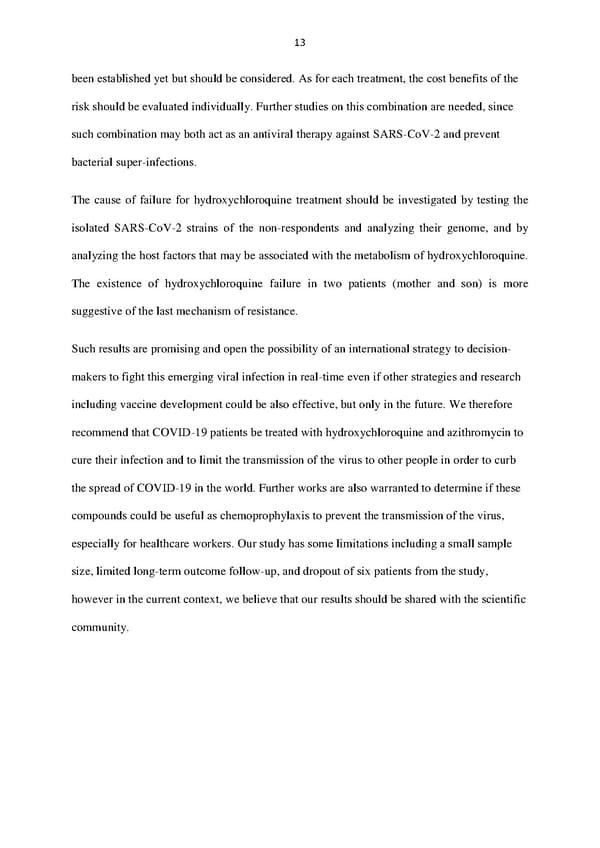13 been established yet but should be considered. As for each treatment, the cost benefits of the risk should be evaluated individually. Further studies on this combination are needed, since such combination may both act as an antiviral therapy against SARS-CoV-2 and prevent bacterial super-infections. The cause of failure for hydroxychloroquine treatment should be investigated by testing the isolated SARS-CoV-2 strains of the non-respondents and analyzing their genome, and by analyzing the host factors that may be associated with the metabolism of hydroxychloroquine. The existence of hydroxychloroquine failure in two patients (mother and son) is more suggestive of the last mechanism of resistance. Such results are promising and open the possibility of an international strategy to decision- makers to fight this emerging viral infection in real-time even if other strategies and research including vaccine development could be also effective, but only in the future. We therefore recommend that COVID-19 patients be treated with hydroxychloroquine and azithromycin to cure their infection and to limit the transmission of the virus to other people in order to curb the spread of COVID-19 in the world. Further works are also warranted to determine if these compounds could be useful as chemoprophylaxis to prevent the transmission of the virus, especially for healthcare workers. Our study has some limitations including a small sample size, limited long-term outcome follow-up, and dropout of six patients from the study, however in the current context, we believe that our results should be shared with the scientific community.
 Hydroxychloroquine and Azithromycin as a Treatment of COVID-19 Page 12 Page 14
Hydroxychloroquine and Azithromycin as a Treatment of COVID-19 Page 12 Page 14